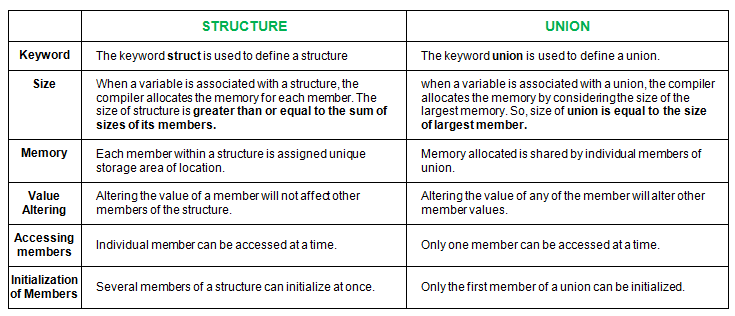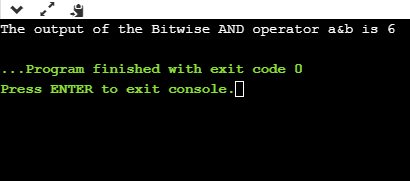Static Variables in C
Static variables are initialized only once. The compiler persists with the variable till the end of the program. Static variables can be defined inside or outside the function. They are local to the block. The default value of static variables is zero. The static variables are alive till the execution of the program.
Here is the syntax of static variables in C language,
static datatype variable_name = value;
Here,
datatype − The datatype of variable like int, char, float etc.
variable_name − This is the name of variable given by user.
value − Any value to initialize the variable. By default, it is zero.
Here is an example of static variable in C language,
Example
#include <stdio.h> int main() { auto int a = -28; static int b = 8; printf("The value of auto variable : %d\n", a); printf("The value of static variable b : %d\n",b); if(a!=0) printf("The sum of static variable and auto variable : %d\n",(b+a)); return 0; }
Output
Here is the output
The value of auto variable : -28 The value of static variable b : 8
The sum of static variable and auto variable : -20
Difference between Structure and Union in C
A structure is a user-defined data type available in C that allows to combining data items of different kinds. Structures are used to represent a record.
Defining a structure: To define a structure, you must use the struct statement. The struct statement defines a new data type, with more than or equal to one member. The format of the struct statement is as follows:struct [structure name] { member definition; member definition; ... member definition; };A union is a special data type available in C that allows storing different data types in the same memory location. You can define a union with many members, but only one member can contain a value at any given time. Unions provide an efficient way of using the same memory location for multiple purposes.
Defining a Union: To define a union, you must use the union statement in the same way as you did while defining a structure. The union statement defines a new data type with more than one member for your program. The format of the union statement is as follows:union [union name] { member definition; member definition; ... member definition; };Similarities between Structure and Union
- Both are user-defined data types used to store data of different types as a single unit.
- Their members can be objects of any type, including other structures and unions or arrays. A member can also consist of a bit field.
- Both structures and unions support only assignment = and sizeof operators. The two structures or unions in the assignment must have the same members and member types.
- A structure or a union can be passed by value to functions and returned by value by functions. The argument must have the same type as the function parameter. A structure or union is passed by value just like a scalar variable as a corresponding parameter.
- ‘.’ operator is used for accessing members.
Differences






0 comments:
Post a Comment